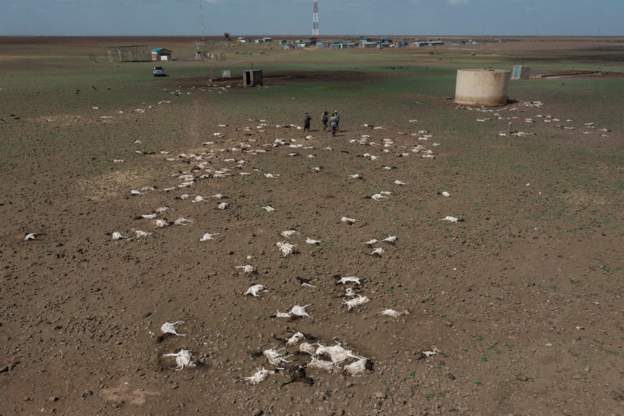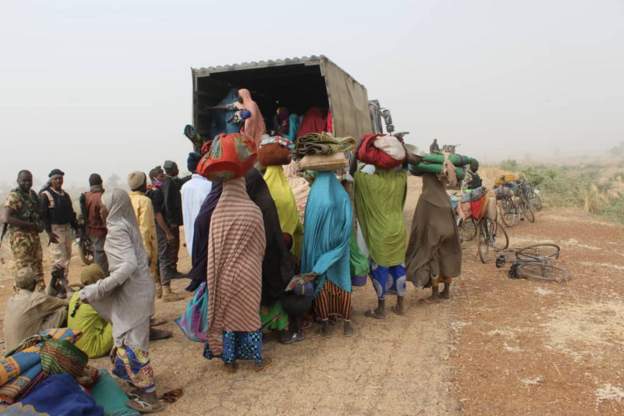The Nigerian army says more than 100 members of the Islamic State West Africa Province (Iswap) jihadist group and their families have surrendered to its soldiers.
A statement posted on Twitter by the Nigerian army said they surrendered over the weekend in the north-east – and comprised 22 men, 27 women and 55 children.
Photos posted alongside the statement showed army trucks offloading some women and their loads and were received by soldiers in Damboa.
Local media reports that while hundreds of jihadists militants have surrendered to authorities, the 13-year old insurgency continues.
On Saturday, three civilians were reportedly abducted by Iswap fighters at Mandaragirau village, in what appeared to be a reprisal attack, after 25 insurgents drowned near Lake Chad.
The lslamist militants were attempting to cross a deep river while fleeing air strikes by the Nigerian Air Force jets.
Read Also: No need taking pictures with coup plotters- Security Expert
Over 10m face severe hunger in Horn of Africa – UN

The United Nations’ World Food Programme (WFP) says 13 million people across the Horn of Africa face severe hunger because of continued drought.
Failed harvests and food shortages are forcing families from their homes, the WFP says, and immediate assistance is needed to prevent a humanitarian crisis.
The rainy season has failed three years in a row – and the drought continues.
Crops are ruined, livestock are dying, and 13 million people in Ethiopia, Somalia, and Kenya are going hungry.
Food prices are rising, and with little to harvest, demand for agricultural labour is falling, increasing the pressure on families trying to feed themselves.
Without immediate assistance, the WFP says, a humanitarian crisis is unavoidable.
The WFP is appealing for $327m (£242m) to respond to the drought – in the short term to provide food and cash grants, and in the long term to build resilience among farming communities where less rain and more drought could, with climate change, become the norm.
Source: BBC


























